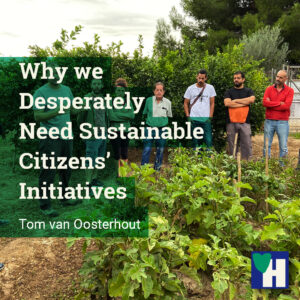
We desperately need more sustainable citizens’ initiatives, because we cannot trust politicians to take the effort. I explain my lack of trust in politicians by expressing my amazement about some peculiar political beliefs.
I do this to introduce a project that tries to change devastating agricultural practices for the better: GO Agrodiverso.
It’s an amazing project because it’s aimed at the conservation of as great a variety of national fruits and vegetables as possible. The participants want more biodiversity in agriculture.
Moreover, the positive impact of the project will also be tremendous on the conservation and biodiversity of nature, the environment, local economies, and social life in small-scale local communities.
Some of the links are affiliate links. As an affiliate associate, we earn a commission when you purchase any of the products offered through the shared links at no extra cost for you. This helps us maintain this website.
Table of contents
Sustainable citizens’ initiatives
We desperately need more sustainable citizens’ initiatives. An example is the Go Agrodiverso project. This project is aimed at as large as possible participation of citizens in eco-friendly agriculture.
How to destroy your country
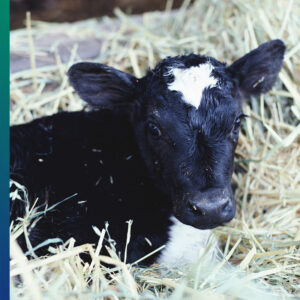
For me, it has always been a mystery why nationalists destroy their own country. Whether you look at the Communist Party in China, the Putin Clan in Russia, the Republicans in the USA, or the nationalists in Spain, under the banner of their weird ideologies they destroy what they claim to preserve: their own country.
Before explaining the innovative, climate, and environmentally friendly agricultural project, I would like to emphasize my political point with four examples illustrating exactly the opposite.
These examples demonstrate how Spanish nationalists destroy their country. Spanish nationalists vehemently favour the destructive capacities of the bio-industry and literally hate anything that, and anybody who favours nature and the environment.
Macrogranjas
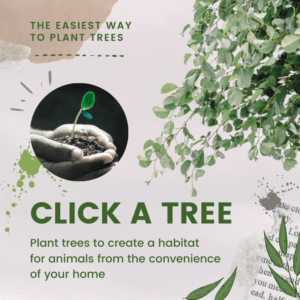
In the Spanish comunidad autónoma de Castilla-La Mancha there are regional elections. The nationalists chose ‘meat’ as their central campaign issue. Already for a longer period, there are fierce debates in Spain about the macrogranjas.
Macrogranjas are huge pigsties or henneries where thousands of animals live in the most appalling conditions. That’s not the only issue. These animals are fed with the soja that’s produced after large tracts of the Amazone rain forests have been destroyed.
Moreover, in this type of bio-industry, it’s common to use growth hormones, which are detrimental to humans. They also use all kinds of chemicals to prevent the animals to get sick.
That they do get sick in those appalling conditions is all too common. The animals are unable to build up any immunity because they are never in the open air, and don’t eat proper food.
Speaking of the open air, the macrogranjas pollute the air with enormous amounts of particulate matter. The stench of these farms is unsupportable. In some areas, there are so many pigsties and henneries, that the people who live there are unable to open the windows of their houses.
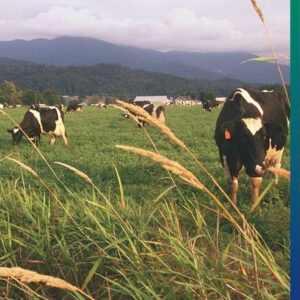
A couple of days ago, the leader of the biggest nationalist party in Spain gave a press conference in Castilla-La Mancha to start their ‘meat’-campaign. In front of a beautiful green pasture with a small forest in the back, and some cows strolling through the grass, he fervently defended the existence of the bio-industry and the expansion of macrogranjas.
If it wasn’t such a sad performance, it almost made me laugh. If ever anybody proved why he was wrong, it was this politician. There is no bigger difference imaginable between the beautiful entourage in which he made his statement, and a macrogranja.
Mar Menor
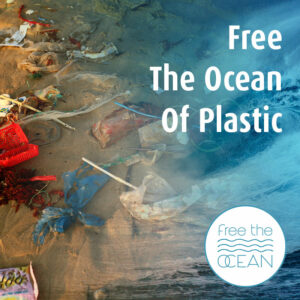
The Mar Menor is an albufera, a very rare coastal saltwater lagoon, in the region of Murcia. To be better able to enjoy the beautiful lagoon, over the past decades a military airbase and many urbanizations have been built along the coast of the lagoon. The small land strip closing off the lagoon at the seaside has been overbuilt with high holiday-apartment buildings.
The Mar Menor is a protected lagoon since 1994. This official protection was never observed by the consecutive nationalist governments of the region of Murcia or the surrounding municipalities.
As a result, in 2019 and 2021, all fauna and flora in the water of the lagoon were destroyed due to polluted wastewater entering the lagoon from the intensive farm fields surrounding the lagoon.
All blue flags on the beaches surrounding the lagoon, which flags indicate the safety for swimming, had to be removed.
On August 28, 2021, more than 70.000 Murcianos made a human chain, surrounding the lagoon, in the midst of the COVID-pandemic, to urge better protection.
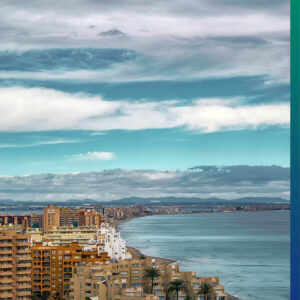
A couple of months later, a petition with 500.000 signatures was presented to the national government in Madrid to introduce a law to prevent any further damage to the lagoon. The regional government of Murcia still refuses to do anything in favour of the lagoon.
The Department of Defense has not offered any plans to remove its airbase from the border of the lagoon. No farmers are planning to change their polluting habits.
There is some interesting development, however. In December 2021, a documentary about Mar Menor was broadcasted in Germany, by the German tv-station ZDF.
As a result, the Murcian management of the German supermarket-chain Aldi wrote a letter to the 80 farmers surrounding the Mar Menor. The letter stated, that if the farmers were not going to change their habits, Aldi will refuse their produce in the future.
Related: Sustainable Agricultural Practices Prevent Excessive Soil Erosion
Doñana Natural Area
On June 24, 2021, the European Court of Justice convicted the Spanish government for severe neglect of the aquifers providing groundwater to the Doñana National Park at the Delta of the river Guadalquivir. This neglect resulted in severe deterioration of the Doñana Natural area.
Already since 2009, the European Commission received complaints about illegal water abstraction for agriculture and the overextension of water supply for the tourist area of Matalascañas. Year after year, the Spanish local, regional and national governments ignored the complaints and refused to comply with the European rules, which they themselves helped to establish.
The European Court of Justice’s conviction of the Spanish government states that it refused to take the appropriate measures “…to prevent disturbance of the protected habitat types located within the ‘Doñana’ protected area…”
Despite the conviction by the European Court, the current nationalist government in the Comunidad autónoma de Andalucía recently decided to legalize a multitude of illegal greenhouses, which illegally, already for many years, extract water from the Doñana aquifer.
The Doñana National Park has the dubious honour of being the first UNESCO World Heritage Site on the brink of losing this status.
Tablas de Daimiel
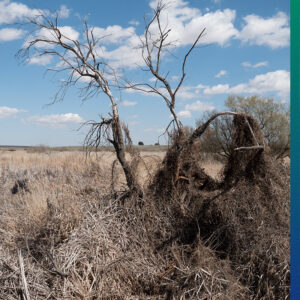
From the biggest, Doñana, to the smallest national park in Spain. Tablas de Daimiel is a wetland, situated in the middle of Spain. The park is of exceptional value for marshland birdlife.
Wherever the eye goes, farmland surrounds the small park. A couple of years ago, the very subtle balance between nature and farming was disturbed by farmers who started to grow crops that required much more water. Hundreds of illegal wells were dug, almost draining the water of the park.
Unfortunately, the park is situated in the Spanish Comunidad autónoma de Castilla-La Mancha, which has now become a major political battlefield for the nationalist ‘meat’ campaign.
Related: Water Conservation Management is Crucial for a Sustainable Agriculture
GO Agrodiverso

How to change such devastating policies? With this aim, various advocacy groups supporting organic and ecological farming in Murcia, the region where we live, started a new project. The project is called Go Agrodiverso.
Go Agrodiverso combines the concerns of organic and ecological farmers with those of retail and consumers. The aim is to create more agricultural biodiversity and more ecologically responsible farming and consumption.
To be able to do this a chain of interested parties – from seed to plate – has been organized. Organic farmers, organic seed producers, and organic advocacy groups want to restore traditional fruits and vegetables.
Such restoration is meant to offer a more diverse amount of fruits and vegetables for the consumers. By closing short local and regional supply lines, such restoration will also be more environmentally friendly from the perspective of transport.
The project also aims at improving small-scale local social communities. Those are now often easy targets for the bio-industry. When such small-scale communities are invaded with pigsties and henneries, they are often in no time drained from all inhabitants. Increasing the already substantial depopulation and urbanization problems in Spain.
Related: Citizens Devoted to the Conservation of Biodiversity
Increase citizens’ involvement
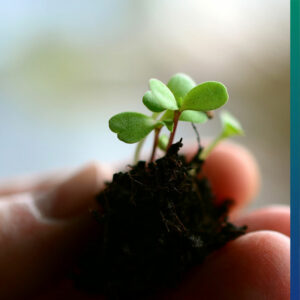
One of the reasons the disaster of the Mar Menor was able to draw 500.000 signatures, was, of course, that many Spaniards are very upset about the detrimental destruction of their country.
Go Agrodiverso is a type of project aimed at converting citizens’ anger and disappointment for the better. It offers many opportunities for citizens to participate. The project mobilizes more citizens, to take responsibility for improvements in agriculture. And they are willing.
An example of this is the Dutch citizens’ association ODIN. This association manages a chain of 45 ecological supermarkets throughout The Netherlands. Members pay a monthly fee of 25 euros and receive a discount on the products that they buy in the ODIN supermarket.
Sustainable citizens’ initiatives are important
Greater citizen involvement is a challenge. But I think it’s always an advantage as well. Because greater involvement of citizens alleviates, with their efforts, the necessary additional governance, legal, financial, and administrative tasks.
Such involvement also gives more guarantees for the longevity of the beautiful sustainable agricultural projects so many Spanish already started.
Would you like to become a member of citizens’ associations to promote more eco-friendly agriculture in your region? Please let us know in the comment box below.


